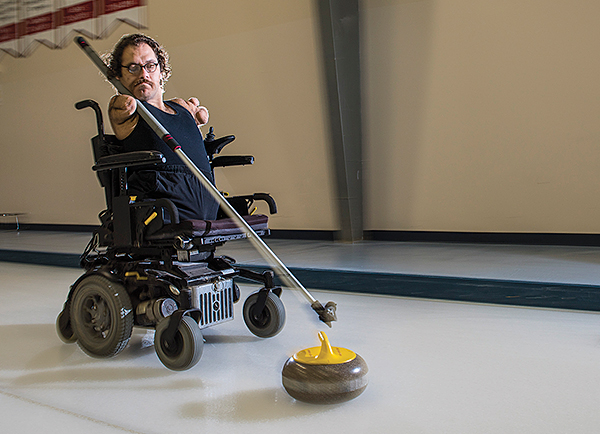Daniel Ennett was five when he first faced the wide lens of a television camera. He was recovering from a quadruple amputation at Edmonton's Glenrose Rehabilitation Hospital as a result of meningitis. CBC footage shows a blond boy playing video games and making smoothies. The camera pans to his mom: "Nothing seems to stop him," she says. "Give him something to do and he finds a way to do it." Now, 17 years later, the third-year psychology student is host of a Telus Optik web series, Invincible, which just released its third season. In the series, he tries scuba diving, skiing and dancing and talks to others with disabilities about how they're redefining the meaning of "ability."
Q: What activity did you like best on the show?
A: In the third season, I got an open-water scuba diving certification from Disabled Divers International and went diving with sharks in the Florida Keys. We managed to get a few feet away from hammerheads. There's something surreal about chasing these sharks to get a close-up glimpse of them.
Q: In the course of filming, what did you learn about the world of disability?
A: A lot of disability associations are born from people who did a sport, then had an accident and realized they needed to get back in the saddle. There are cool activities designed for people with disabilities - you just have to look for them. The thing about disabilities is that the range is so varied: what works for one person who is disabled will not work for another. Take skiing. You won't use the same mechanism to help a paraplegic ski as someone who is blind. People are often open about their limitations and learn to get past them.
Q: Why did you take psychology?
A: I coasted into it, but recently, when I was trying to come up with a thesis idea, I got excited about research studying people's perceptions of minority groups. That and attribution theory - how people assign causation to different situations - interest me.
Q: Do you need any accommodations to be successful in class?
A: I'm taking a reduced course load, so my degree will take me a little longer. I use PDF textbooks and have an aide who takes notes in class. We use Google Docs so that as the aide types, I can add things using an onscreen keyboard controlled by my mouse.
Q: What do you see in your future after U of A?
A: Graduate research. More and more research. I love it.
Q: If Invincible films a fourth season, what's in store for you?
A: I just want to go really fast [laughs]. It would be cool to do something in a high-speed, high-octane vehicle. I've been on these four wheels for a very long time.

We at New Trail welcome your comments. Robust debate and criticism are encouraged, provided it is respectful. We reserve the right to reject comments, images or links that attack ethnicity, nationality, religion, gender or sexual orientation; that include offensive language, threats, spam; are fraudulent or defamatory; infringe on copyright or trademarks; and that just generally aren’t very nice. Discussion is monitored and violation of these guidelines will result in comments being disabled.